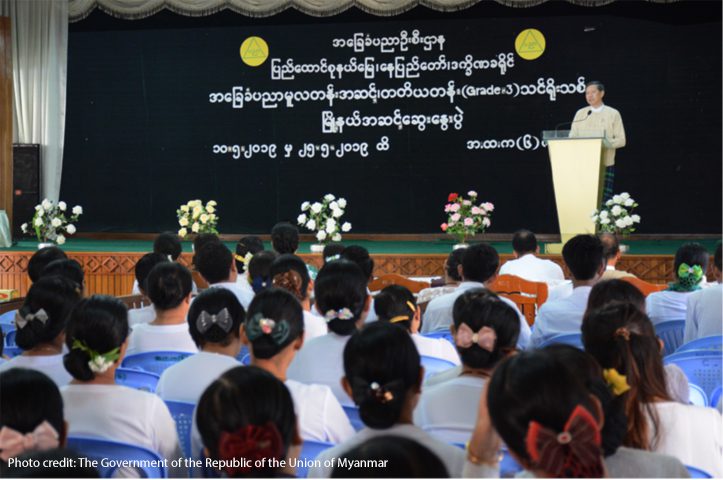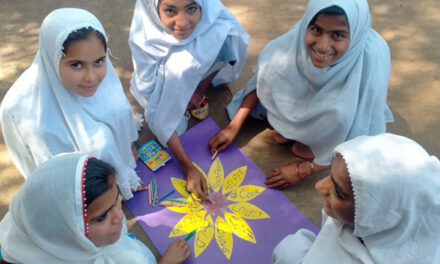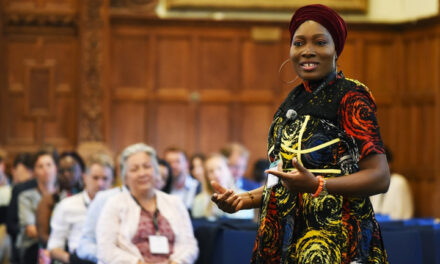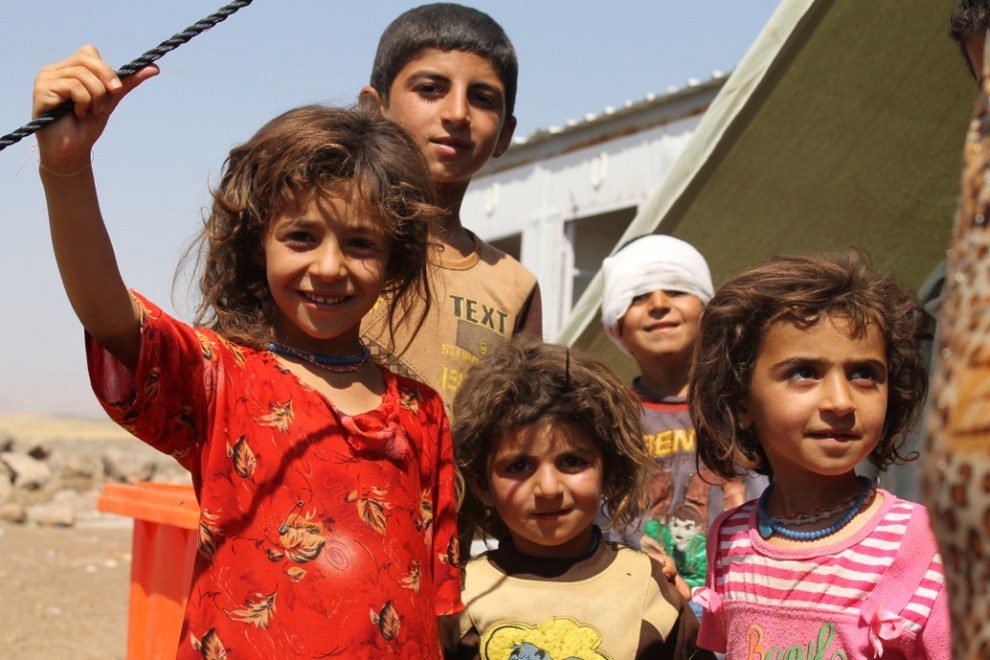This blog was written by Khaing Phyu Htut, Education Adviser, Foreign, Commonwealth & Development Office (FCDO), Myanmar. It is based on a presentation given at the 2023 UKFIET conference.
I have been working on education for more than 20 years in Myanmar with the last 7 in the field of education aid. I am currently leading on education for the UK’s FCDO.
Myanmar had brief hopes for education improvements in the 2010s. Then, education reforms of a decade (2011 to 2020) were crushed in the political crisis which started with the military coup in February 2021. We are a coup-plagued country as it was the third time since 1962 and the most recent coup has been the most destructive. Over 5 million children (more than half of Myanmar school children) dropped out from schools in 2021, the year right after the coup. In 2023, 17.6 million people – nearly one third of the population – are estimated to be in humanitarian need. Children in remote areas are at severe risk of child labour and exposure to drugs and gambling. Many regions lack safety and security with boys facing the plight of being recruited as child soldiers, and girls facing early marriage, sexual exploitation, human trafficking, violence and abuse.
Education donors, including the UK, have stopped working with state education system which, unfortunately, is the major provider of education services for more than 92% of children and youth in Myanmar. Most education services by donors take place outside the state system to a limited number of children and youth. At the same time, education provision is restricted by a newly-imposed law of the military regime demanding any organisation in Myanmar to register with them. The UK and other development partners have been trying to be as flexible as possible to offer education services to the most needed areas. There has been good coordination work where the UK helps as a facilitator in developing a joint response framework, development of joint programmes contributing to the framework, reprogramming of Global Partnership for Education funds to the new context, and the initiation of an Education Cannot Wait programme in Myanmar.
The paper I presented at the 2023 UKFIET conference recognises Myanmar’s education through multiple crisis: legacy low-quality provision since the 1960s, learning gaps caused by the Covid-19 pandemic and conflicts caused by the aftermath of the February 2021 coup. It is based on mini research on state school teachers in Myanmar. The aim of the paper is to explore the perspectives of state school teachers, to voice their views and to draw out learning for similar contexts of education in crisis.
Teachers in the research unanimously call for stability in the country – for education improvements and to grow professionally. They express conflicts due to the political crisis as the biggest issue. Under-investment in state education and a lack of foresight are noted as persistent century-long issues. They also note a lack of collaboration from international agencies since the military coup, no real support and resources from the government for education, unqualified leaders, the growing gap between private and public education, over-centralisation in education administration and no autonomy for education institutions. Beyond these overall issues, teacher-specific issues identified range from lack of financial and social security for teachers, no professional support, and no real opportunity to ask for their rights. Probably stemming from those problems, teachers have low motivation, no accountability for children’s learning, and bad teacher behaviours are affecting children’s social and emotional well-being.
It is interesting and at the same time understandable that the solutions teachers see are beyond the field of education, like hoping for an educated and empathetic leader who values education and who invests in education, stability in the context, and no discrimination due to religion/ethnicity. It is obvious that teachers themselves are doubtful of the quality of education they are providing from comments like ‘State schools to provide quality education,’ ‘Stop tuitions,’ ‘No more teacher bias.’ ‘Change everything from the beginning’ is a suggestion which shows the frustration and trapped state of teachers. Surprisingly and sadly, teachers don’t see themselves as important enough in bringing about the solutions. This is probably because of the passive role they have always been assigned, and the roles they see as mainly to teach and not go further beyond. Teachers advocate for peace, stability and investment in education for other contexts to learn from Myanmar.
It can be seen in conclusion that Myanmar state schoolteachers are stuck in the political crisis. As teachers, they are pivotal to the development of Myanmar and yet are trapped by lacking means and capacity to alleviate the crisis. The research sees the need for international agencies to help Myanmar teachers consistently despite the challenging context. Working directly with state schoolteachers is not possible in the current context due to the risk of legitimising the de facto authorities. At the same time, FCDO education work in Myanmar has been crafted to support teachers in challenging contexts and designed to reach the most vulnerable children and girls in Myanmar.






Your blog is all about education system of myanmar. Thank you. Keep it up.